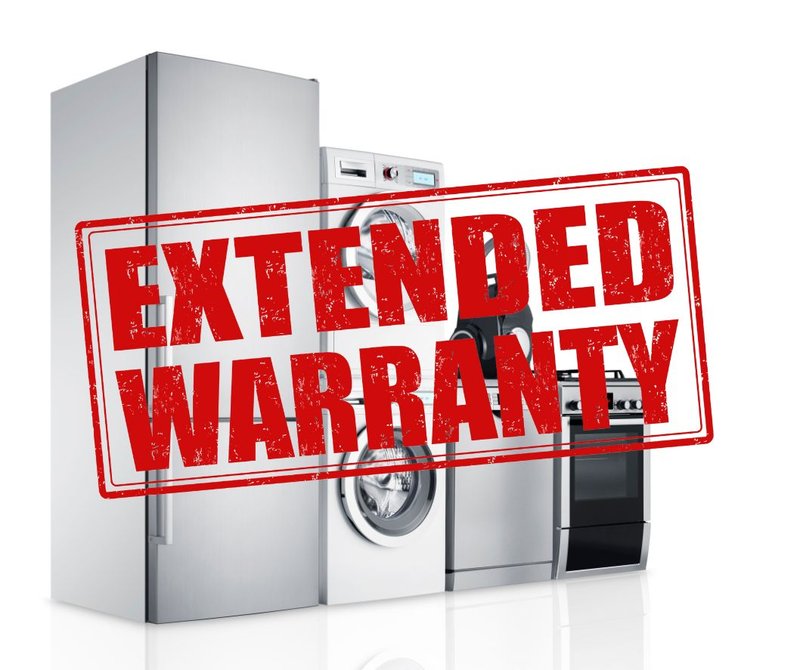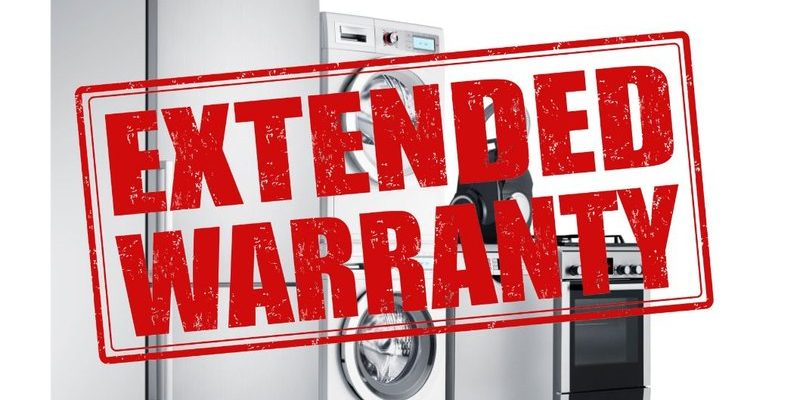
Here’s the thing: Extended warranties can feel a bit like a safety net that you hope not to use but are glad to have. But since these ovens are usually built to last and come with decent manufacturer coverage, it’s worth unpacking what extended warranties actually offer and whether they make sense for your KitchenAid appliance. Let me explain how these warranties work and when they could save you money—or just end up sitting in your files unused.
What Is An Extended Warranty For KitchenAid Ovens & Ranges?
When you buy a KitchenAid oven or range, it usually comes with a standard manufacturer warranty—often covering parts and some labor for one year. Think of this as your appliance’s “honeymoon period,” where any defects or early issues get fixed without costing you extra. The extended warranty kicks in *after* that standard coverage expires. It’s an additional contract, usually purchased separately, that prolongs your protection for a few more years.
But what does this protection really cover? Typically, extended warranties promise to repair or replace parts that malfunction due to normal wear and tear. This might include heating elements, control panels, or sensors. However, they rarely cover problems caused by misuse, accidents, or neglect. So, it’s not a magic fix for every possible kitchen catastrophe, but rather a way to avoid surprise repair bills on common appliance breakdowns.
You might be tempted to think an extended warranty is like having a 24/7 mechanic on call—but usually, services require you to deal with specific authorized repair providers and follow certain claim procedures, which can sometimes be a hassle. It’s like signing up for roadside assistance but learning you have to call in advance and can only get help from one towing company.
How Reliable Are KitchenAid Ovens & Ranges?
Honestly, KitchenAid has a solid reputation. Their ovens and ranges are known for being durable and well-made. Many users will get years of daily cooking without major repairs. Sure, no appliance is perfect, but KitchenAid tends to have fewer breakdowns than budget brands. This reliability matters when deciding on extended warranty coverage.
Think about it like buying a car from a trusted brand with a good track record. You might skip extra coverage because the odds of something going wrong soon are pretty low. But if your oven model is packed with extra tech—like touchscreen controls or smart syncing features—there might be more parts that could fail over time. That could make an extended warranty feel more like a cushion against future tech headaches.
On the flip side, KitchenAid ovens include electronic control boards and sensors that can sometimes be costly to fix. If those fail right after your manufacturer warranty ends, an extended warranty could save you hundreds. So, it’s a balance between trusting the product quality and preparing for those “just in case” repairs.
What Do Extended Warranties Cover—and What Don’t They?
You might be picturing a warranty covering *everything* that could go wrong. Here’s the reality: extended warranties usually have specific terms outlining what gets fixed, and what isn’t included. For KitchenAid ovens and ranges, typical coverage involves:
- Parts replacement for heating elements, burners, and control boards.
- Labor costs when a certified technician fixes your appliance.
- Malfunctions from normal use—not accidents or misuse.
But here’s the catch: extended warranties don’t cover things like:
- Damage caused by spills, drops, or physical shocks.
- Issues arising from poor installation or maintenance.
- Cosmetic wear like scratches or dents.
Also, many extended warranties require you to call in a specific service number and only use authorized repair providers. If you try to fix something yourself or use an outside repair shop, you might void the coverage. This can sometimes mean more hoops to jump through when you just want your oven working again.
How Much Does An Extended Warranty Cost For KitchenAid Appliances?
Price is usually the dealbreaker. Extended warranties for KitchenAid ovens and ranges often cost between 10% and 20% of your appliance’s original price, sometimes more. For example, if your oven costs $2,000, the warranty might be $200 to $400 or higher for 2–3 extra years of coverage.
That might sound steep, especially if your oven is already reliable. But, on the flip side, fixing a broken control board or heating element can easily run into hundreds of dollars. Labor charges alone might be $100 or more per visit. So, if you consider the *potential* repair costs, paying extra upfront could make sense.
Here’s a little trick: think about your own tolerance for risk. Are you the kind of person who likes having every “what-if” covered, or someone comfortable handling potential repairs out-of-pocket? If you bake and cook a lot, your oven might get more wear, making warranty protection slightly more valuable.
Alternatives To Buying An Extended Warranty
If extended warranty costs give you pause, there are other ways to protect your KitchenAid oven without spending extra on a contract.
- Manufacturer’s Warranty: Make sure you understand and fully use the one that comes with your oven. Register your appliance and keep all paperwork handy.
- Regular Maintenance: Cleaning burners, avoiding spills on electronic controls, and scheduling yearly appliance checkups can prevent many common issues.
- Home Warranty Plans: Some people opt for a broader home warranty covering multiple appliances, including ovens. This can sometimes be more cost-effective.
- Self-Repair Resources: Basic troubleshooting like reset, re-syncing electronic controls, or replacing batteries in remote controls (if your oven has smart features) can extend appliance life without a technician.
Sometimes, these options give you peace of mind without locking you into an extended warranty plan that you might never use. It’s like choosing whether to fix your car yourself or pay extra for roadside assistance and repairs.
When Does An Extended Warranty Make Sense For KitchenAid Ovens?
So, when should you *seriously* consider an extended warranty for your KitchenAid oven or range? Here are a few scenarios:
- If your oven is loaded with high-tech features—things like smart syncing, touchscreen controls, or complicated diagnostics, which might be costly to fix.
- If you’re not comfortable troubleshooting or repairing small issues yourself. Sometimes simple things like resetting an oven’s control board or syncing a remote control need expert help.
- If you love peace of mind and hate surprises. For some, that stability is worth the extra cost.
- If you don’t plan to replace your appliance soon. The longer you keep it, the more value an extended warranty might offer.
If you tick none of these boxes, you might feel comfortable skipping the extended warranty and saving that money instead.
How To Decide: Evaluate Your KitchenAid Warranty Options
Honestly, figuring out if an extended warranty is worth it boils down to a few simple questions:
- How much did you pay for your KitchenAid oven or range?
- What does the standard warranty cover, and for how long?
- Are you willing and able to do minor troubleshooting or repairs yourself?
- How long do you expect to keep your appliance?
- What’s your budget for unexpected repairs?
Sometimes writing down repair cost estimates next to warranty prices can make things clearer. For example, if repairs usually cost around $300 and the warranty is $400, you might decide it’s cheaper to take your chances. But if peace of mind and hassle-free repairs matter more, the warranty might be worth it.
Remember, an extended warranty isn’t just about fixing things—it’s about how comfortable you feel when your oven suddenly acts up in the middle of dinner prep.
Wrapping It Up: Is An Extended Warranty Worth It For KitchenAid Ovens & Ranges?
At the end of the day, extended warranties for KitchenAid ovens and ranges aren’t a one-size-fits-all deal. They can be a smart investment if your appliance is packed with advanced features, if you want that safety net, or if you plan to keep the oven for many years. But if you trust the brand’s quality, can handle minor fixes, and don’t mind taking a bit of a risk, you might be better off skipping the warranty and saving that cash.
Just like choosing whether to carry extra insurance on your favorite gadget, it’s all about your personal comfort level with risk and repair costs. Whatever you decide, keeping your oven well maintained and understanding your options can save you headaches—and maybe even some money—in the long run.
